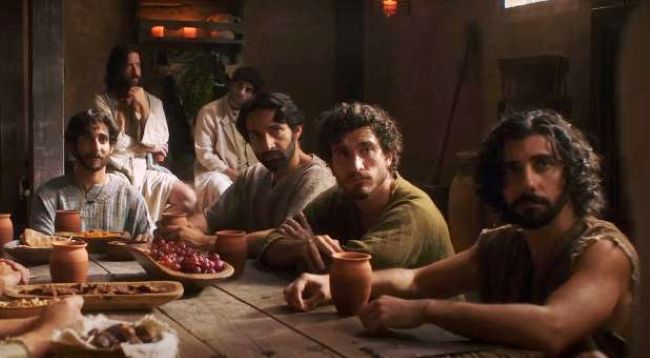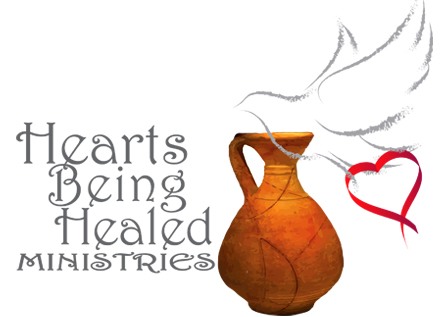THE UPPER ROOM. By Sara Cain.
Today is the first day of Holy Week. Palm Sunday commemorates the Sunday before Passover when Jesus made his triumphal entry into Jerusalem riding a donkey. The crowds cheered him, waving palm branches and singing, “Hosanna” and “Blessed is He who comes in the name of the Lord”.
The crowd thought they were getting ready to crown their king who would save them from Roman rule and allow them to reclaim their independence as a Jewish nation. But He knew He was there to save them from themselves, for His kingdom was not of this world. While the people cheered, Jesus grieved for their lack of understanding, and struggling with his human heart that wanted to avoid the agony that was coming soon, and yet his God-heart wanting to rescue all of us and restore us to relationship with God.
Palm Sunday is the last time Jesus preached in public. During the next few days, Jesus spent time with his disciples away from the crowds, trying to prepare them for what was to come. This was the week of the Passover Feast, and he gave them instructions to procure a room for them to have a meal together, and so they secured an upper room in a private dwelling.
It was here that Jesus taught his last lesson, gave his last instructions, and prepared them for what was to come. What was shared in that upper room was the catalyst to what would bring us salvation and reconciliation with God, and ultimately, what would turn the world upside down.
Luke 22:14-20 (NIV)
When the hour came, Jesus and his apostles reclined at the table. And he said to them,
I have eagerly desired to eat this Passover with you before I suffer. For I tell you, I will not eat it again until it finds fulfillment in the kingdom of God.”
After taking the cup, he gave thanks and said,
“Take this and divide it among you. For I tell you I will not drink again from the fruit of the vine until the kingdom of God comes.”
And he took the bread, gave thanks and broke it, and gave it to them, saying,
“This is my body given for you; do this in remembrance of me.”
In the same way, after the supper he took the cup, saying,
“This cup is the new covenant in my blood, which is poured out for you.”
The disciples did as they were instructed, and only God knows how much or how little they understood at that moment. But Jesus was not finished teaching yet.
Like most people in that time and region, the disciples walked everywhere. Most of the roads were dirt and their shoes were open sandals. So, the feet of everyone, no matter how good their hygiene or how much money they had, would be very dirty when they entered a home. Upon arrival, a household servant would wash the feet of all who entered the home, including guests. Tending another person’s personal hygiene was the lowliest of jobs.
The disciples knew all this, so imagine their shock when Jesus did this next:
Jesus knew that the Father had put all things under his power, and that he had come from God and was returning to God; so he got up from the meal, took off his outer clothing, and wrapped a towel around his waist. After that, he poured water into a basin and began to wash his disciples’ feet, drying them with the towel that was wrapped around him. He came to Simon Peter, who said to him,
“Lord, are you going to wash my feet?”
Jesus replied, “You do not realize now what I am doing, but later you will understand.”
“No,” said Peter, “you shall never wash my feet.”
Jesus answered, “Unless I wash you, you have no part with me.”
“Then, Lord,” Simon Peter replied, “not just my feet but my hands and my head as well.” – John 13:12-17
I love Peter’s response. Peter enthusiastically asks Jesus to wash his hands and head, too … he wanted more of Jesus! Jesus was saying to them (and to us) that to be part of Him, or as he said, “part with me,” He must wash the “dirt” of this world off of us.
Moreover, Jesus was teaching them about humility. Jesus was their Rabbi, their Lord, The Messiah, but he humbled himself to become their servant by washing their feet… a job for the lowliest of the low, a job that can only be done in humility.
In fact, he told them that to be great in his kingdom, they had to be servants.
“It shall not be so among you. Whoever would be great among you, let him serve you, and whoever would be first among you, let him be your slave, even as the Son of Man did not come to be served, but to serve and to give His life as a ransom for many.” – Matthew 20:26-28 (MEV)
Jesus had plenty to say that night, but he capped off the night with this instruction:
“A new command I give you: Love one another. As I have loved you, so you must love one another.” – John 13:34 (NIV)
Just hours later, Jesus was arrested, put on trial during the night, and was crucified the next day.
Those events in the upper room took place on what is now referred to as Maundy Thursday from the Latin word “mandatum” which means “commandment.” It’s named after the new command Jesus gave to his disciples to love one another, and it demonstrates the importance of humility and service by remembering Jesus washing the feet of the disciples.
I grew up in a church that had a Maundy Thursday Service each year. We would gather at the church the Thursday before Easter, the men in one room, and the women in another. Children were welcome to participate. Without a “program” or designated song leader, we sang worship songs acapella as prompted by our hearts, took communion and prayed together, and washed each others’ feet.
We humbled ourselves, making no distinction between the wealthy and poor, the beautiful and less attractive, the young and old, the popular and the wallflower, those with titles in the church and those without; just souls laid bare in humility. To me that was the most sacred and spiritually perfect gathering of the year.
Very few churches still offer a foot washing service. There are “reasonable” explanations as to why it’s been dropped from the Holy Week schedule, but to me, it feels like it comes with a price. The question lingering in my heart and mind is:
Are we truly capable of pleasing God when we praise Him on Resurrection Sunday if we have chosen to overlook the opportunity of humbling ourselves before our brothers and sisters?
Of course it doesn’t require a planned service and washing other people’s feet to humble ourselves – that would just be ritual. But without the opportunity to focus on this aspect of what Jesus modeled in that upper room, do we acknowledge the significance of Jesus washing the disciples’ feet, and what that means to and for us?
Do we strip ourselves of all pride and perceived position to humble ourselves before seeking the presence of our Lord? Are we lifting our worship and praise to God, not only with joy and thanksgiving, but with humility?
Foot washing is an outward expression of a heart posture of humility, reflecting the character of Jesus our Lord. The important takeaway from this is not that we need to get back to having foot washing services, but that we need to understand and put into action the depth of the meaning of Jesus washing the feet of his disciples. My pastor talks a lot about surrender, and how as Christians growing in our faith, Jesus does not ask us to try harder, but to surrender more to Him. Surrender begins with a humble heart, understanding our standing before God and in relation to our brothers and sisters.
Do we humble ourselves before others, not considering ourselves above any other person, or not “too good” to do a certain job?
Are we willing to humble ourselves enough to allow someone else to wash our imperfect feet, funny toes and all? Or to see the vulnerable places in our heart?
Do we really love each other as Jesus loves us, unconditionally, and whatever the cost?
“Beloved, let us love one another. For love is from God, and whoever loves has been born of God and knows God. Anyone who does not love does not know God, because God is love.” – John 4:7-8



Comments are closed